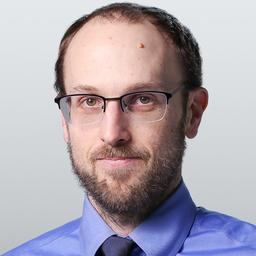NEW YORK—Several hundred Tibetans gathered in New York for marches and two rallies to commemorate the 51st anniversary of the 1959 March 10 Tibetan Uprising.
The Tibetan protesters hoped to highlight the suffering of Tibetans in China and encourage the United Nations to take action. They shouted slogans like “Stop the crimes in Tibet,” and “China is liar” at a rally in a park next to the United Nations New York building.
The protesters then marched to the Chinese Consulate where they held another rally.
Ever since monks began protest marches in Tibet in March 2008, Chinese security forces have maintained a presence in Tibetan towns and villages. According to Students for a Free Tibet, days before the March 10 anniversary the Chinese regime launched a “Strike Hard” campaign in Lhasa interrogating and harassing hundreds of Tibetans.
At the rally, Tenzin Dorjee, deputy director of Students for a Free Tibet (SFT), said that lately monks are kept locked up in their monasteries with “Chinese troops standing in for monks [in the towns] trying to fool media.” He described an eye witness’s account of seeing a man dressed in a soldier’s uniform one day and seeing the same man in monk’s attire the next.
He said the military presence occurred because the regime knows it has no legitimacy to rule Tibet.
“That is why they need millions of troops to maintain this appearance of control—this appearance of normalcy,” said Dorjee.
Chinese troops first entered Tibet in 1949 after the communist takeover of China. With 40,000 troops occupying the country, the Tibetan government was forced to sign an agreement with the communist regime.
As Tibetans resisted Chinese occupation, the desecration of religious sites, and imprisonment of monks only increased. The discontent peaked with massive protests in 1959 in the capital city of Lhasa. It was then that the Dalai Lama fled to India. In the end some 87,000 Tibetans died in the Lhasa region according to Students for a Free Tibet.
Dorjee spoke at the rally saying that unlike mainland Chinese whom the consulate pays and pressures to come out and greet Chinese leaders when they travel abroad, the Tibetan people are here today “because they care about freedom [and] because they care about human rights.”
That difference in motivation he said, makes all the difference. The Chinese regime has “lost the battle for the Tibetan’s people’s hearts and minds,” said Dorjee.
Tenzin Dolkar, the U.S. grassroots director for SFT, said the group is asking the U.S. government to speak out more forcefully on Tibet, especially in regard to freedom of expression. She called freedom of expression a “crucial tool” for people without freedom and said they are also asking information technology companies such as Google to “uphold its decision not to censor Internet searches inside China and Tibet.”
The Tibetan protesters hoped to highlight the suffering of Tibetans in China and encourage the United Nations to take action. They shouted slogans like “Stop the crimes in Tibet,” and “China is liar” at a rally in a park next to the United Nations New York building.
The protesters then marched to the Chinese Consulate where they held another rally.
Ever since monks began protest marches in Tibet in March 2008, Chinese security forces have maintained a presence in Tibetan towns and villages. According to Students for a Free Tibet, days before the March 10 anniversary the Chinese regime launched a “Strike Hard” campaign in Lhasa interrogating and harassing hundreds of Tibetans.
At the rally, Tenzin Dorjee, deputy director of Students for a Free Tibet (SFT), said that lately monks are kept locked up in their monasteries with “Chinese troops standing in for monks [in the towns] trying to fool media.” He described an eye witness’s account of seeing a man dressed in a soldier’s uniform one day and seeing the same man in monk’s attire the next.
He said the military presence occurred because the regime knows it has no legitimacy to rule Tibet.
“That is why they need millions of troops to maintain this appearance of control—this appearance of normalcy,” said Dorjee.
Chinese troops first entered Tibet in 1949 after the communist takeover of China. With 40,000 troops occupying the country, the Tibetan government was forced to sign an agreement with the communist regime.
As Tibetans resisted Chinese occupation, the desecration of religious sites, and imprisonment of monks only increased. The discontent peaked with massive protests in 1959 in the capital city of Lhasa. It was then that the Dalai Lama fled to India. In the end some 87,000 Tibetans died in the Lhasa region according to Students for a Free Tibet.
Dorjee spoke at the rally saying that unlike mainland Chinese whom the consulate pays and pressures to come out and greet Chinese leaders when they travel abroad, the Tibetan people are here today “because they care about freedom [and] because they care about human rights.”
That difference in motivation he said, makes all the difference. The Chinese regime has “lost the battle for the Tibetan’s people’s hearts and minds,” said Dorjee.
Tenzin Dolkar, the U.S. grassroots director for SFT, said the group is asking the U.S. government to speak out more forcefully on Tibet, especially in regard to freedom of expression. She called freedom of expression a “crucial tool” for people without freedom and said they are also asking information technology companies such as Google to “uphold its decision not to censor Internet searches inside China and Tibet.”



